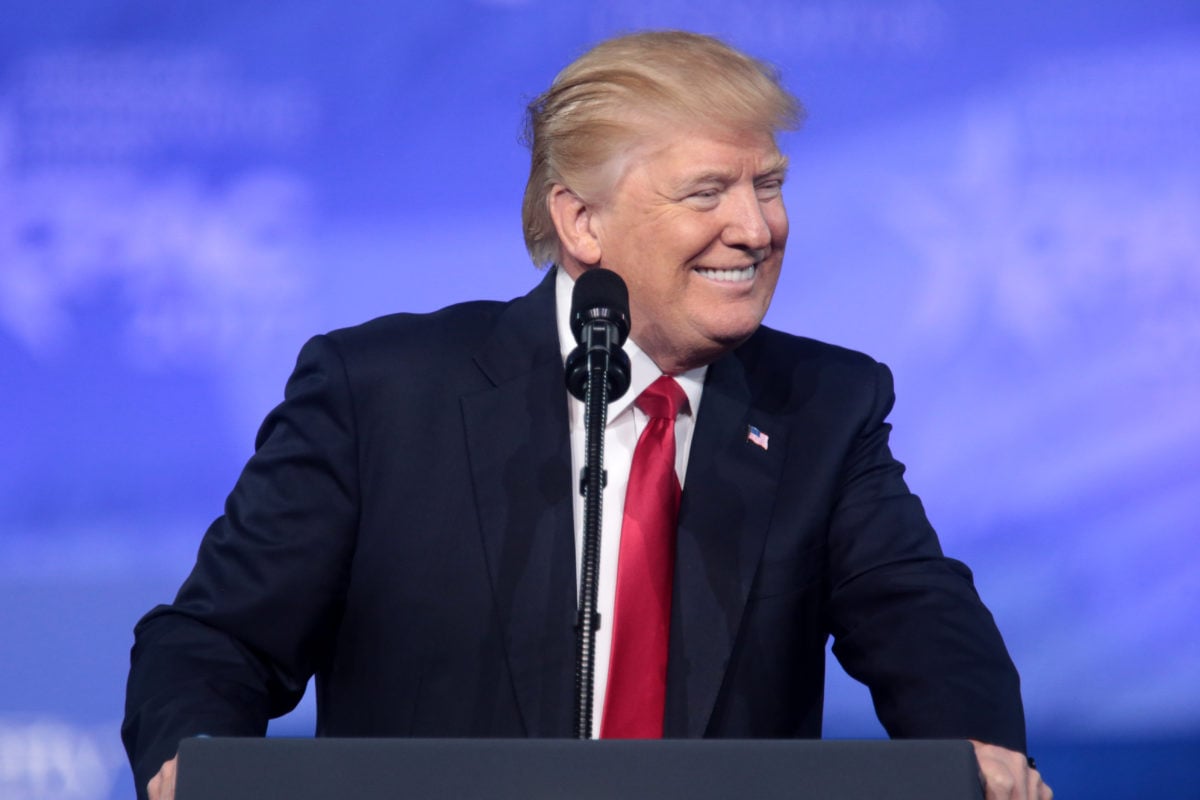On Monday, the Supreme Court allowed the latest version of President Donald Trump’s travel ban to take effect as appeals pend.
For one graduate student, the travel ban is enough to end his studies at Stanford.
The graduate student, who wished to remain anonymous for security reasons, has only completed one full academic year at the University. His last day is Dec. 16.
“The U.S. has a lot of things to offer people from other countries, but at this point, I don’t think I can use them,” he said. “So I am going to leave at the end of the quarter.”
The Supreme Court’s decision earlier this week marks the first time the Court has allowed any version of the ban to take full effect. The first version of the ban, issued in January as an executive order and quickly challenged, sought to bar citizens of seven majority-Muslim countries from entering the U.S. for 90 days. The most recent iteration of the ban,issued in September, restricts travel to various degrees for citizens of Iran, Libya, Syria, Yemen, Somalia, Chad and North Korea, as well as certain people from Venezuela.
Executive Director of Bechtel International Center Shalini D. Bhutani explained that students from abroad have F-1 and J-1 Visas, which are not affected by the travel ban. Similarly, students who are permanent residents are not affected.
However, she said students from countries listed under the travel ban as well as from other surrounding countries tend to be anxious when news of an increased ban come to light.
“Students from other parts of the world tend to be a little anxious for themselves or their family members and for what the future holds,” Bhutani said. “Thereir tends to be this unspoken anxiety about what the risk of traveling might be.”
According to Bhutani, affected students will probably face a more enhanced entry screening ‒‒ especially students from Iran, where most international students in the travel ban’s scope hail from. According to the New York Times, Iran will still be able to send students on student exchanges after extensive screening. Bhutani said international students from countries affected by the ban should feel reassured that there are resources available to them on-campus.
Restrictions resulting from the court’s decision to allow the ban for now include an enhanced vetting process and travel only with visa. According to The New York Times, most citizens of the travel-restricted countries will find emigration to the U.S. impossible, and after vetting, many visitors will be barred from “working, studying or vacationing.”
For some Stanford students, the ban’s implications go beyond a tougher screening.
The graduate student terminating his studies this quarter is moving back home because his fiancee in Iran will not be able to come to the United States. From there, he plans to move to Switzerland.
“This ban is going to be updated and it’s not just going to be one ban,” the graduate student said. “You can’t be sure what happens to you if they have this ban and someone blocks it, then the administration puts out a new ban. This doesn’t stop.”
The graduate student said he might return to find postdoctoral positions in the U.S. if the situation gets better or after his remaining family members pass away.
“I do want to see my family,” he said. “I don’t know how long they are going to be around for. I want to use this opportunity [to be with them] for as long as I can.”
On Monday, Stanford’s president and provost posted an update to a University website informing students about University and local resources on immigration. Bhutani said Bechtel also updated its site to remind students of available resources, including advisors on standby to talk about worries and law school and immigration attorneys available to offer advice on travel registry. Bechtel offers support for students affected by the ban and the Deferred Action for Childhood Arrivals repeal.
“Everything is in place, which doesn’t make it any easier,” Bhutani said. “The University is strongly in support of all students and we are here as staff at Bechtel to support them. We stand by our students and their families.”
Other peer institutions such as University of California-Berkeley and have offered support for affected students as well as ongoing advocacy at the national level.
Some students are determined to stay in the U.S. even as they face uncertain futures here. For another graduate student The Daily spoke to, school comes first, meaning he does not plan on leaving the States at all before finishing his Ph.D.
“I’ve accepted the fact that this could change any day and I’m not risking my Ph.D.,” the student, who also wished to remain anonymous on the grounds of security, said. “I’m not going home until I’m done with this.”
The graduate student said he is too far into his Ph.D. to switch schools. Otherwise, he would pursue other options.
The graduate student explained his parents have come to visit him twice from Iran. Both times, they needed to stop at another country with a U.S. Embassy first and acquire a single-entry visa. The graduate student said he wasn’t sure if they would even be able to do this anymore.
Not seeing his family or being able to go home is especially depressing, the graduate student said, because his sister is getting married in May. He has a tough choice: he must risk traveling home for the wedding or miss his sister’s ceremony.
“It is kind of depressing, but at least this is a good thing that is happening,” he explained. “If something really bad happens, that’s when you really want to go back.”
Contact Gillian Brassil at gbrassil ‘at’ stanford.edu.
